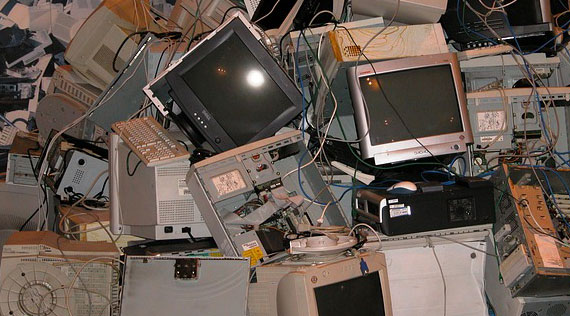
SEATTLE (Waste Advantage): Today, it takes multiple devices to determine the value of a part from an electronic device and it is harder to sell that part than it is to part ways with a broken device—to trash that device altogether, despite not knowing where that trash goes. What causes efficiency also creates waste; we must hasten the campaign to stop electronic waste (e-waste) whose contents include cadmium, copper, beryllium, mercury, lead, and polyvinyl chloride, whose parts disappear by dissolving into the earth—below the ground—from which we fertilize and farm the ground and feed the world. To stop that catastrophe, we need a solution that accurately prices electronic parts, finds buyers for these parts and makes it easy to recycle these parts.
To start, we need to inform the public before we can inspire people to act. We need to make news focus on recycling by saying for the first time—to the many—what only a few have known for a long time: that e-waste threatens to reduce the world into one uniform wasteland. We need more than a single image—the standard image—of waste, where birds nest atop mountains of refuse and garbage trucks dump additional piles of trash.
Before people join the campaign to end e-waste, they need to know that what remains will cease to remain: that whatever data may be on their electronic devices will be destroyed without anyone seeing, reading or try to sell it. The process for destroying data should be clear, something that a recycling center can certify—that it does certify—that what was is no more.
To the extent that there is treasure in trash, and there is a lot of treasure ($400 billion, from 11 billion tons of solid waste each year, according to Dun & Bradstreet) in the trash disposal industry, to the extent that e-waste is an undervalued commodity, people trash what they do not know they can sell or convert into cash. What people need to know is that there is a market for e-waste—a big one—in which they can scan a part and get accurate pricing for what they have. That they can do this from a smartphone or tablet, and get the latest bids for specific parts, is all the more reason to sell or resell electronic parts that we can recycle into new components and consumer products.
Courtesy: https://www.wasteadvantage.com
| Copper Scrap View All | |
| Alternator | 0.31 (0) |
| #1 Copper Bare Bright | 3.65 (-0.04) |
| Aluminum Scrap View All | |
| 356 Aluminum Wheels (Clean) | 0.71 (0) |
| 6061 Extrusions | 0.62 (0) |
| Steel Scrap View All | |
| #1 Bundle | 475.00 (0) |
| #1 Busheling | 495.00 (0) |
| Electronics Scrap View All | |